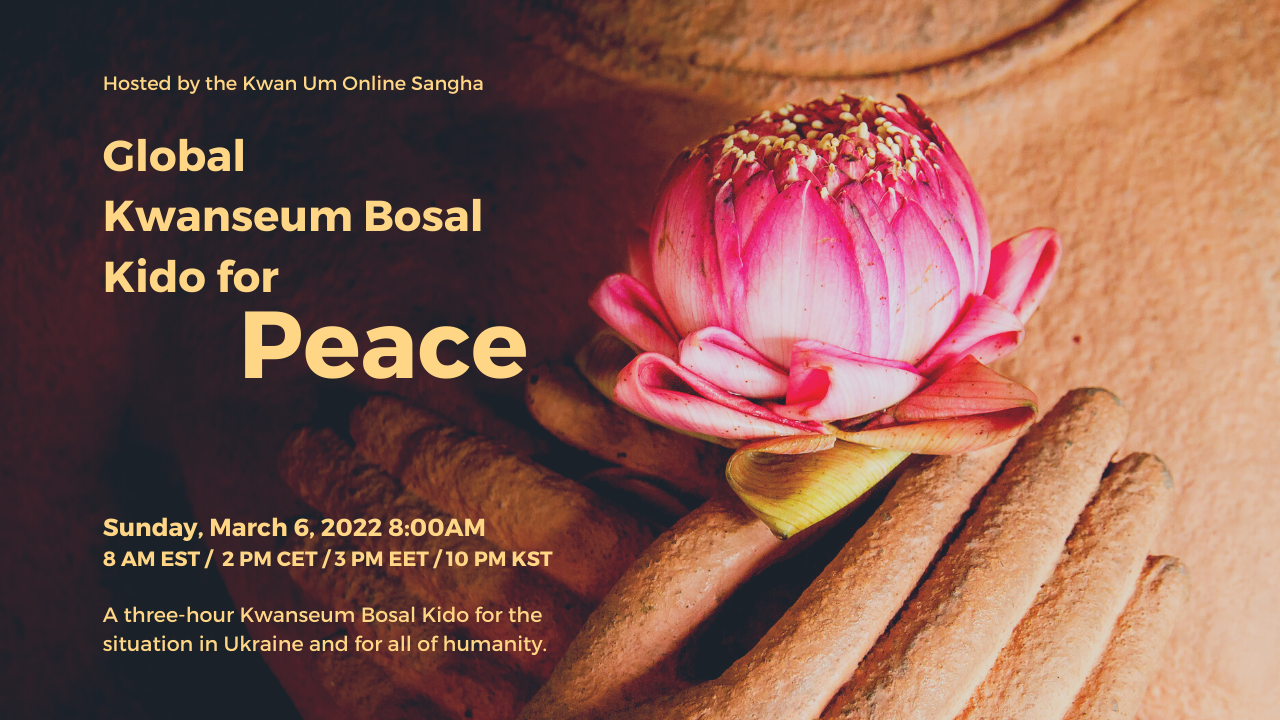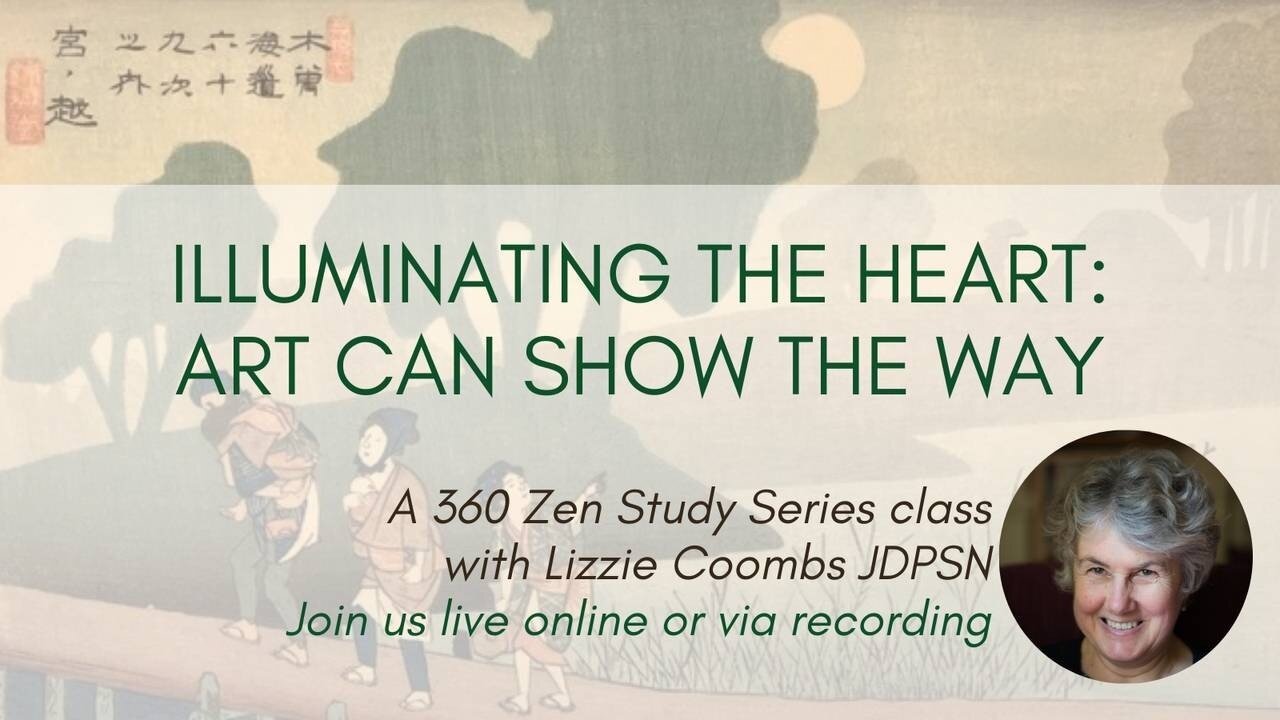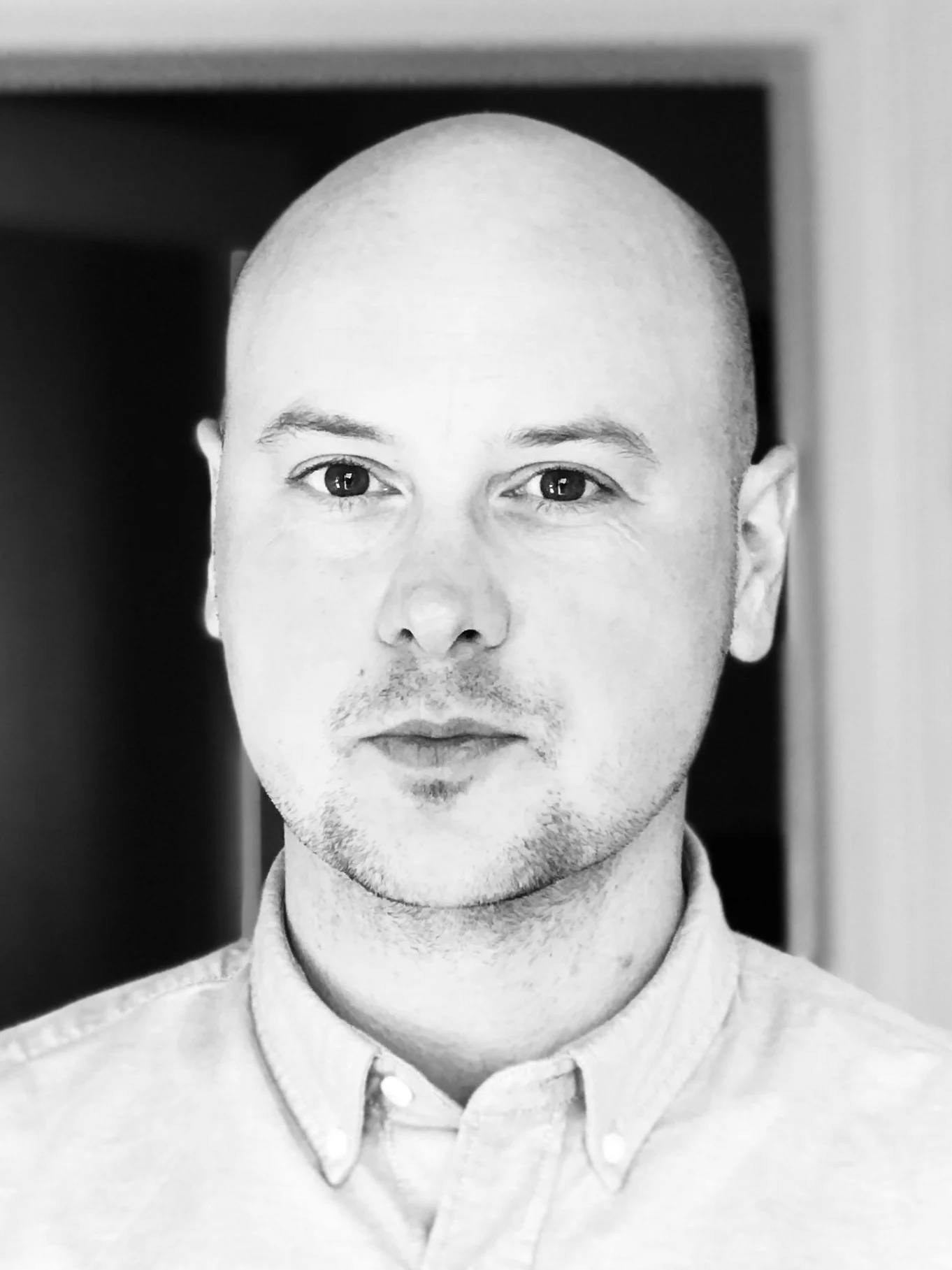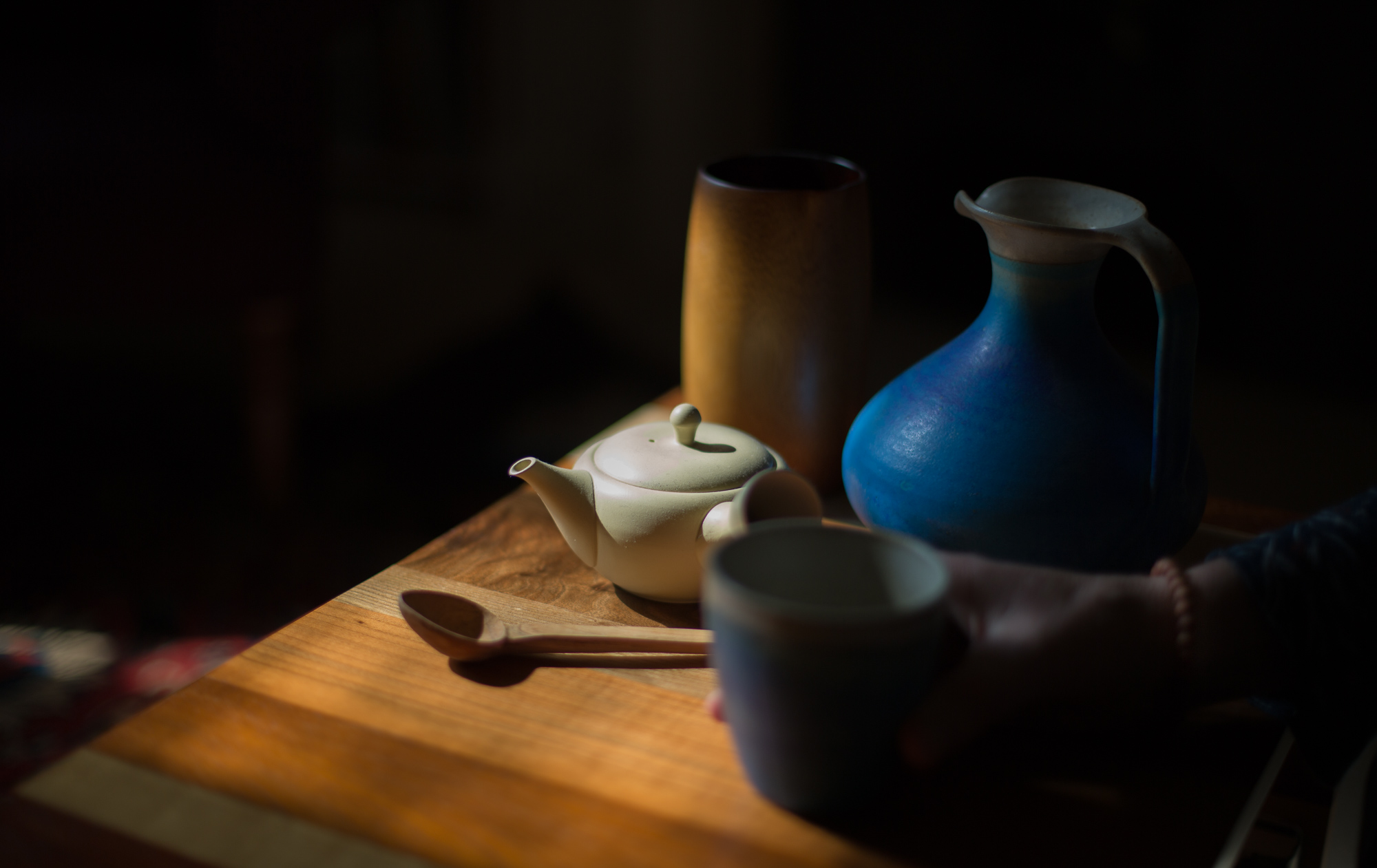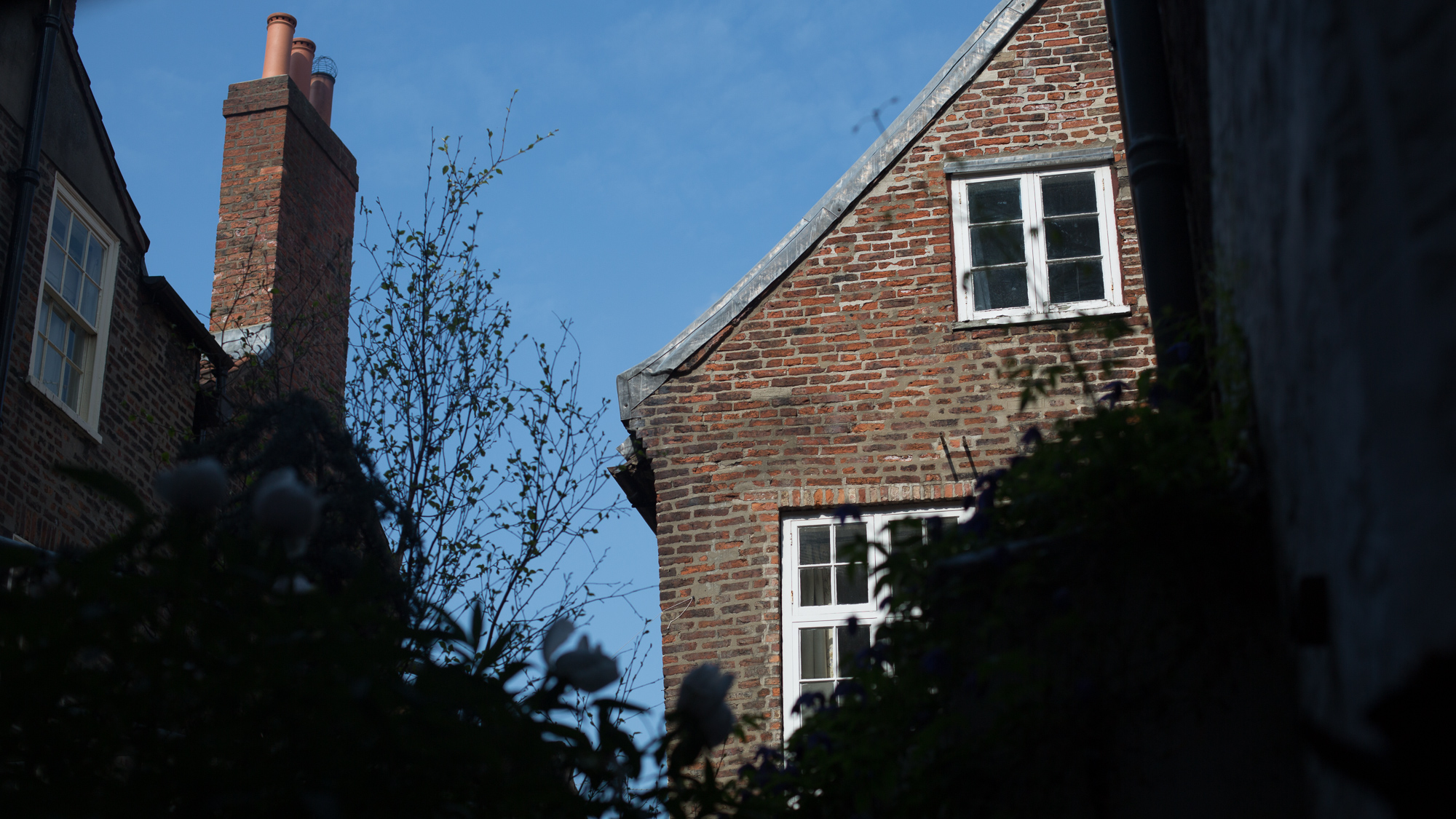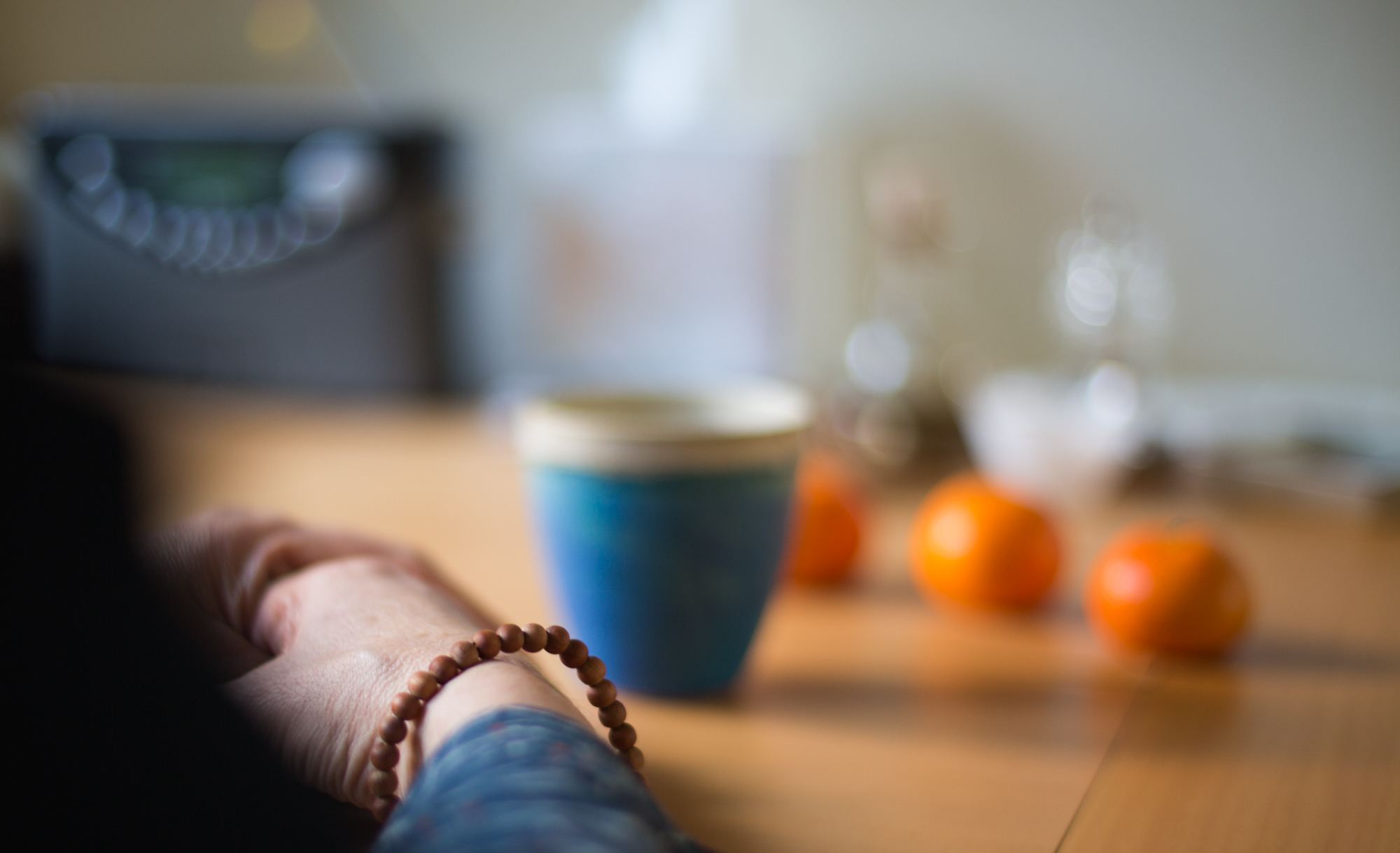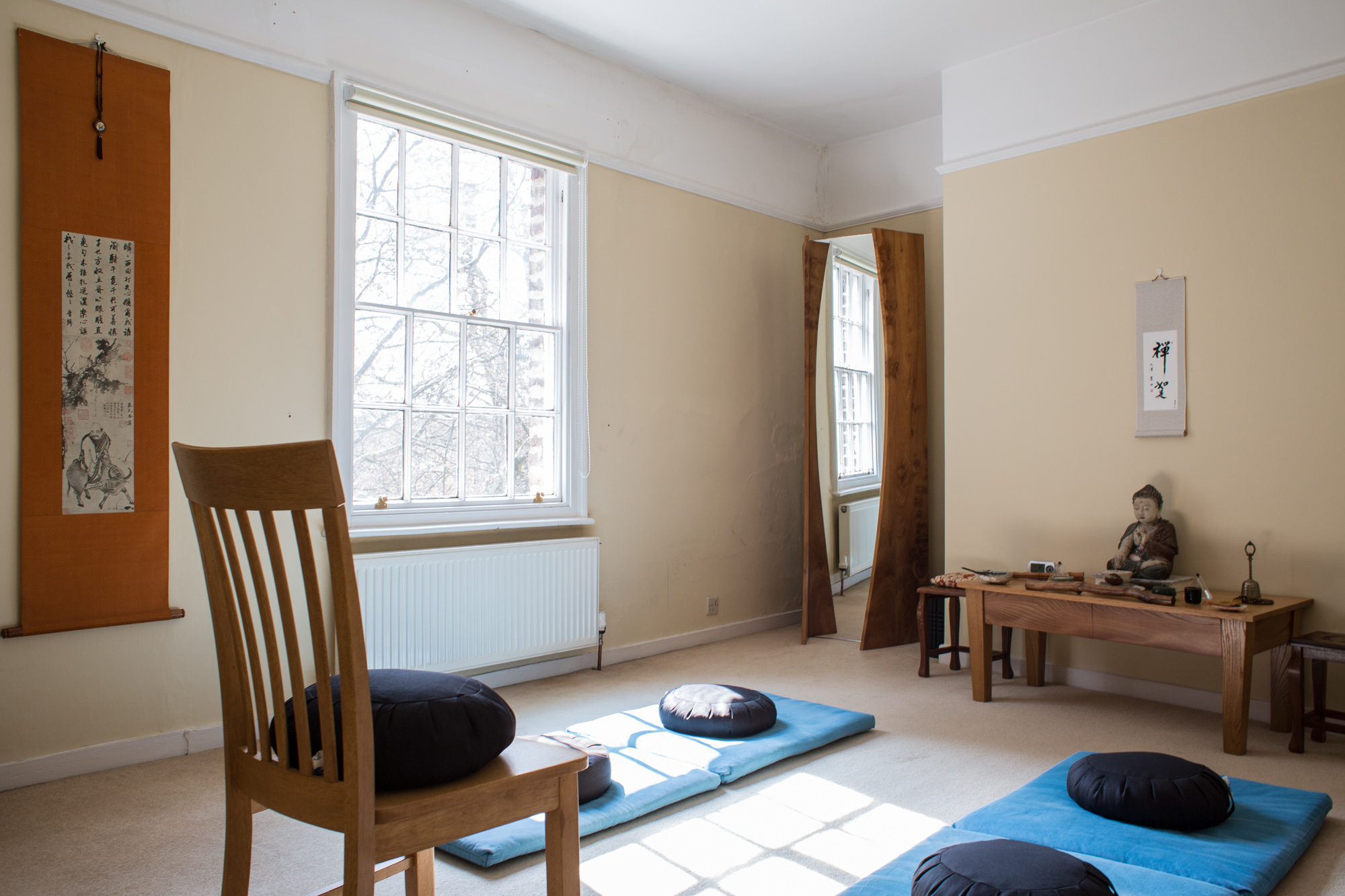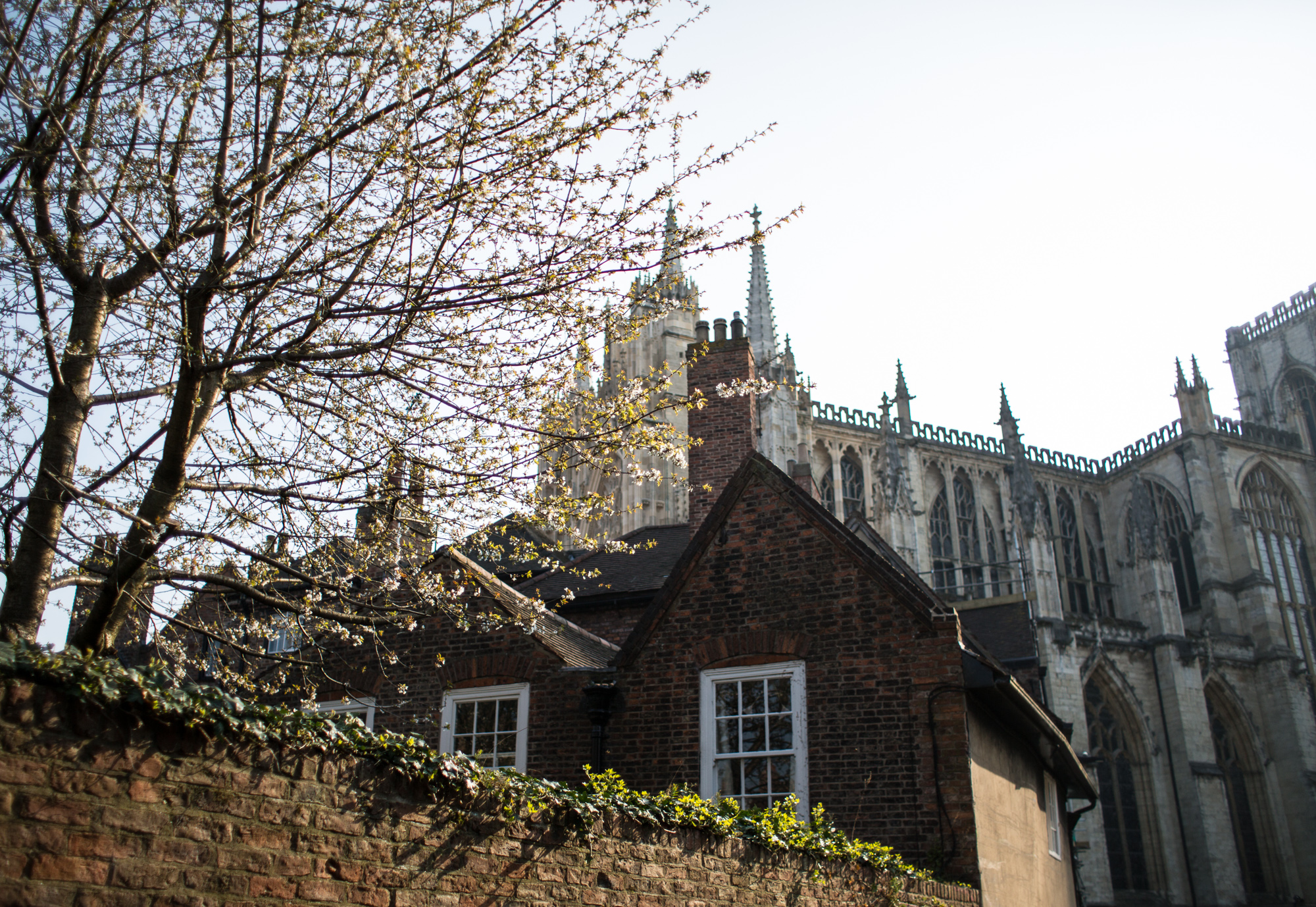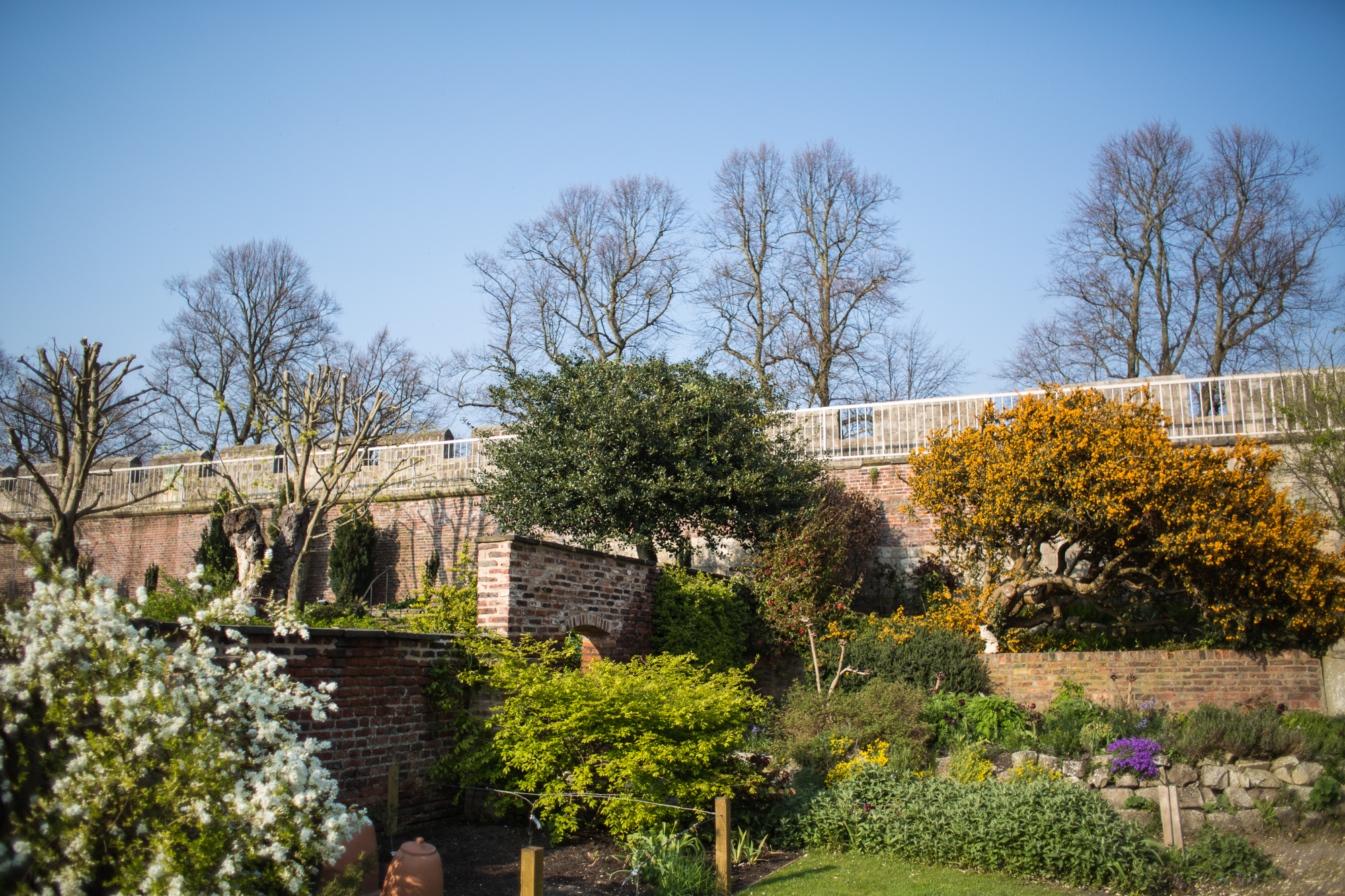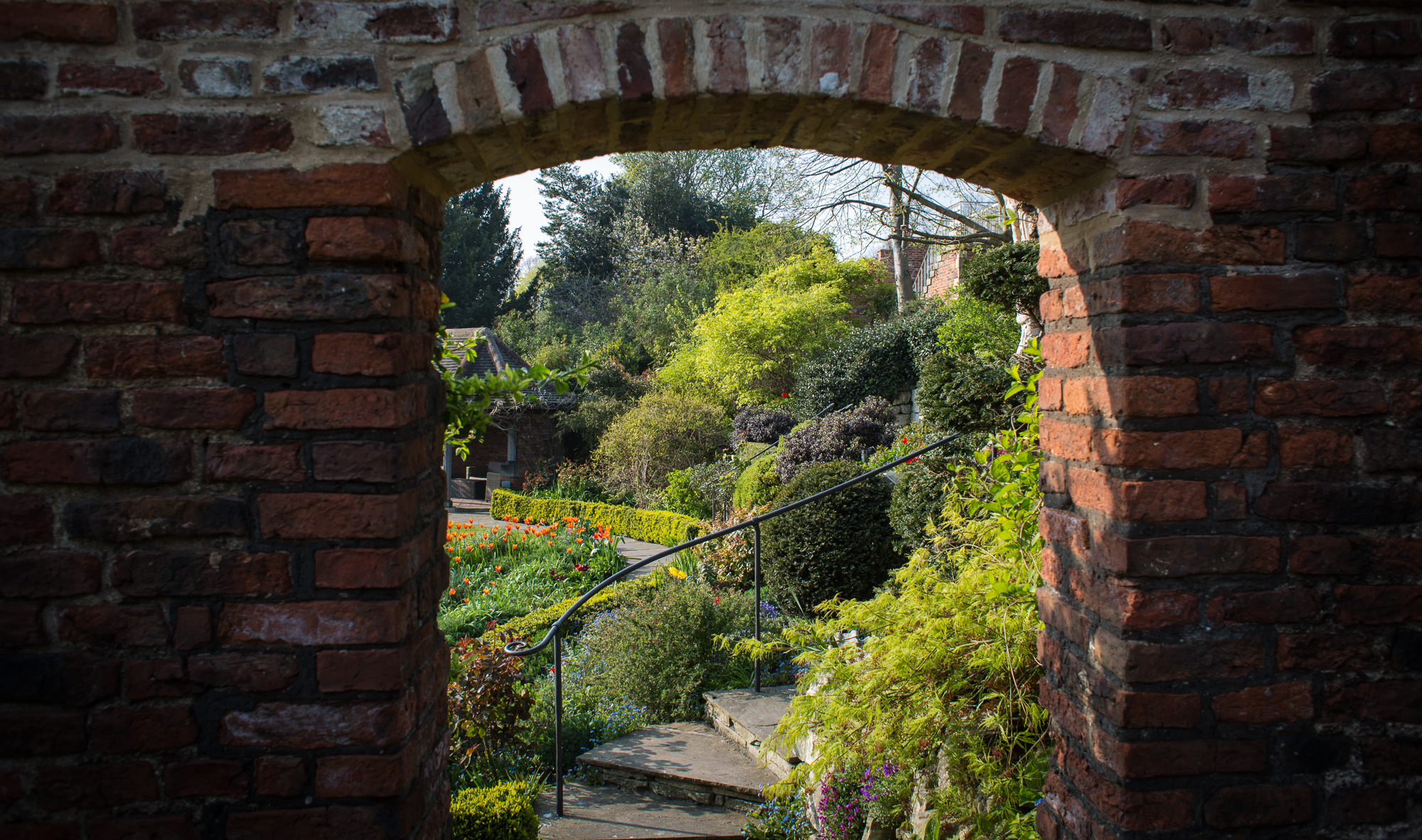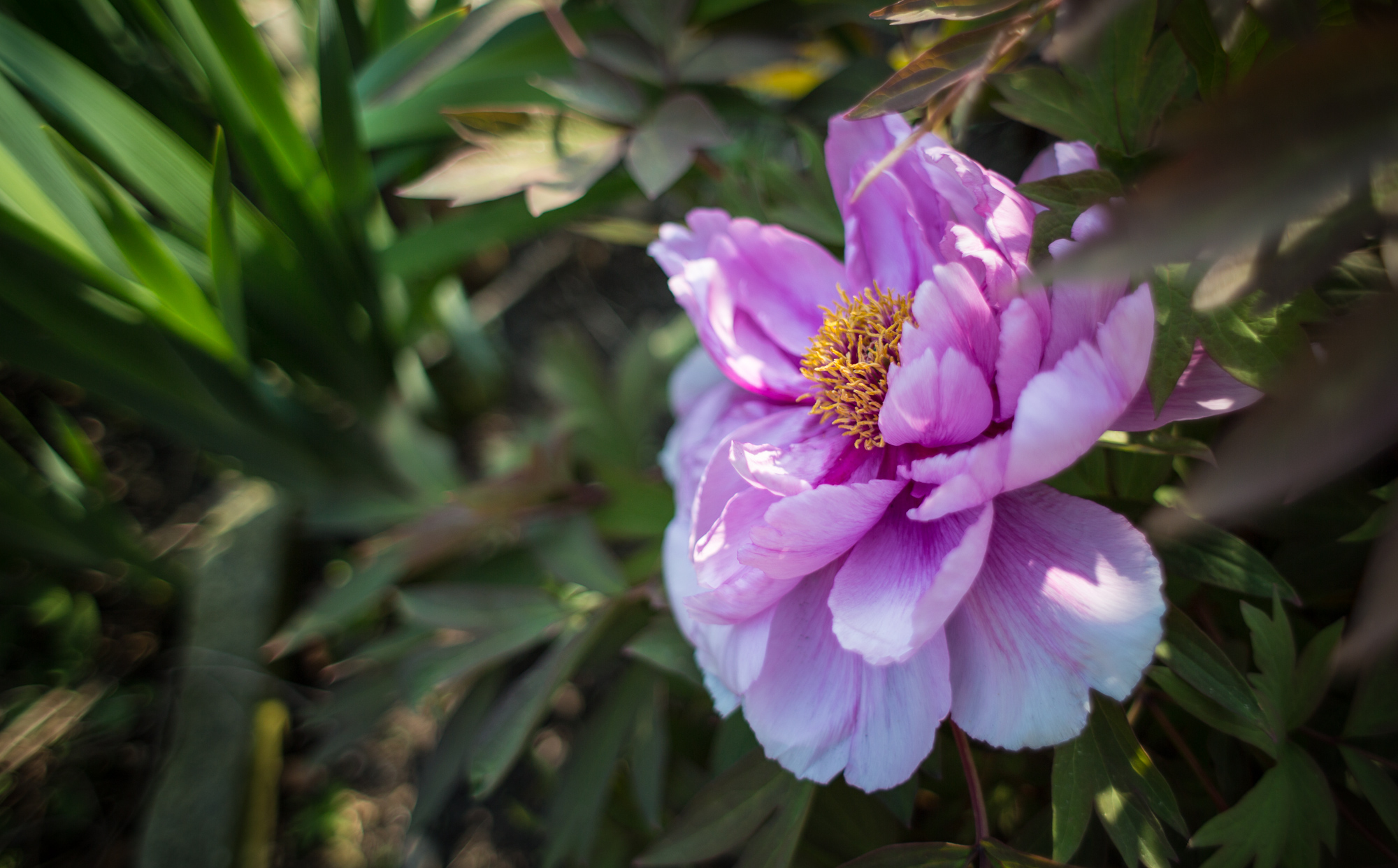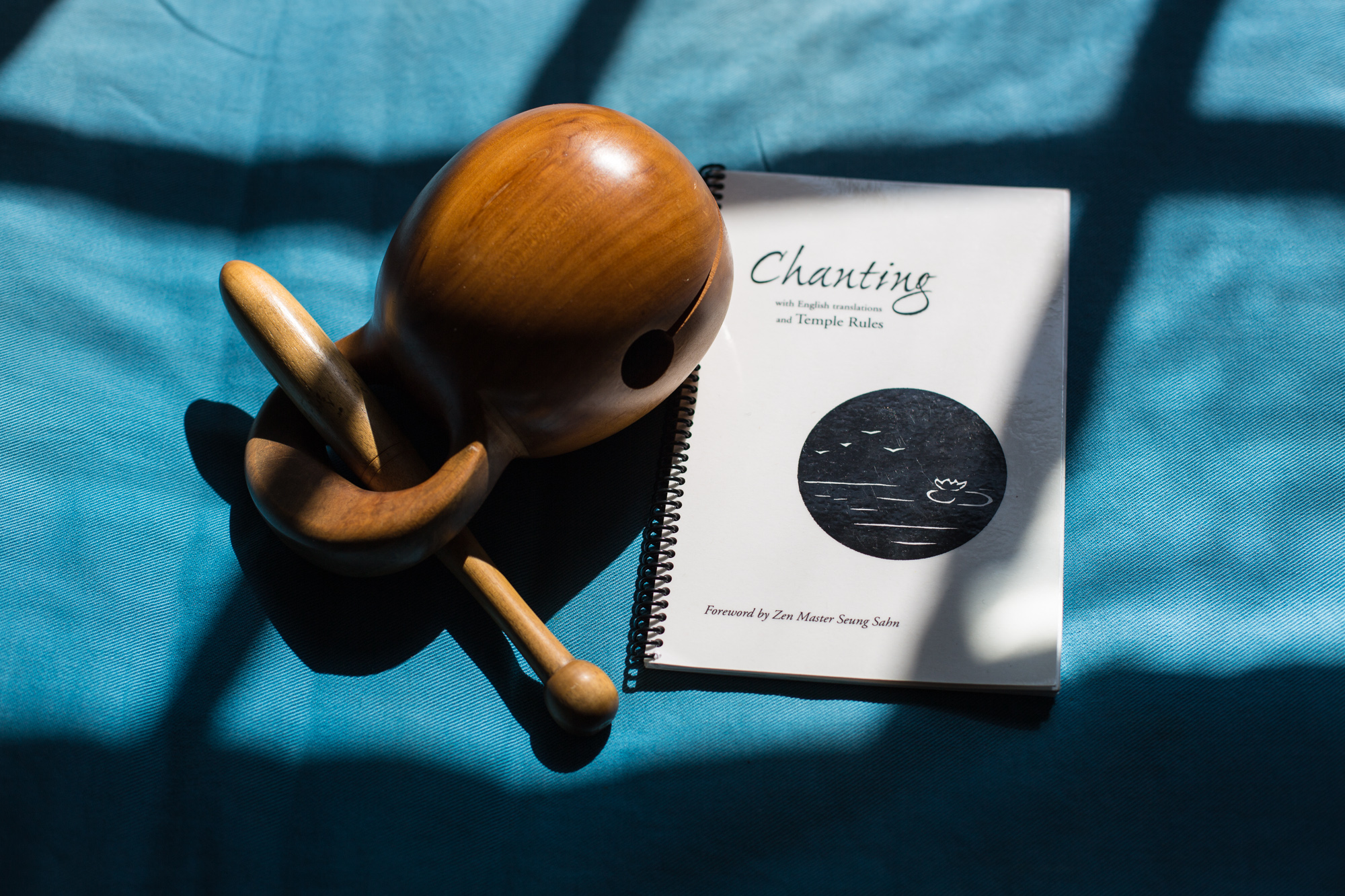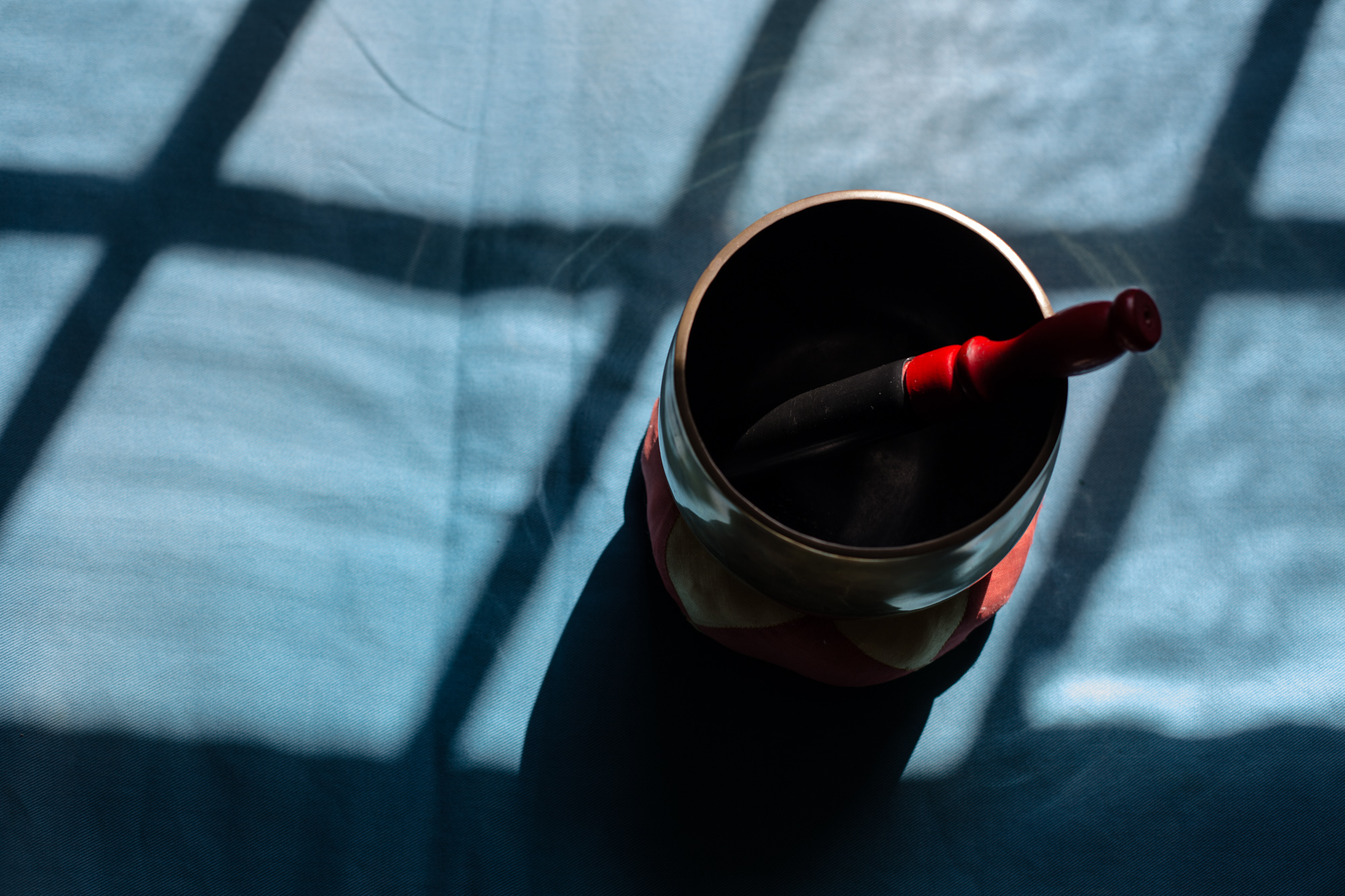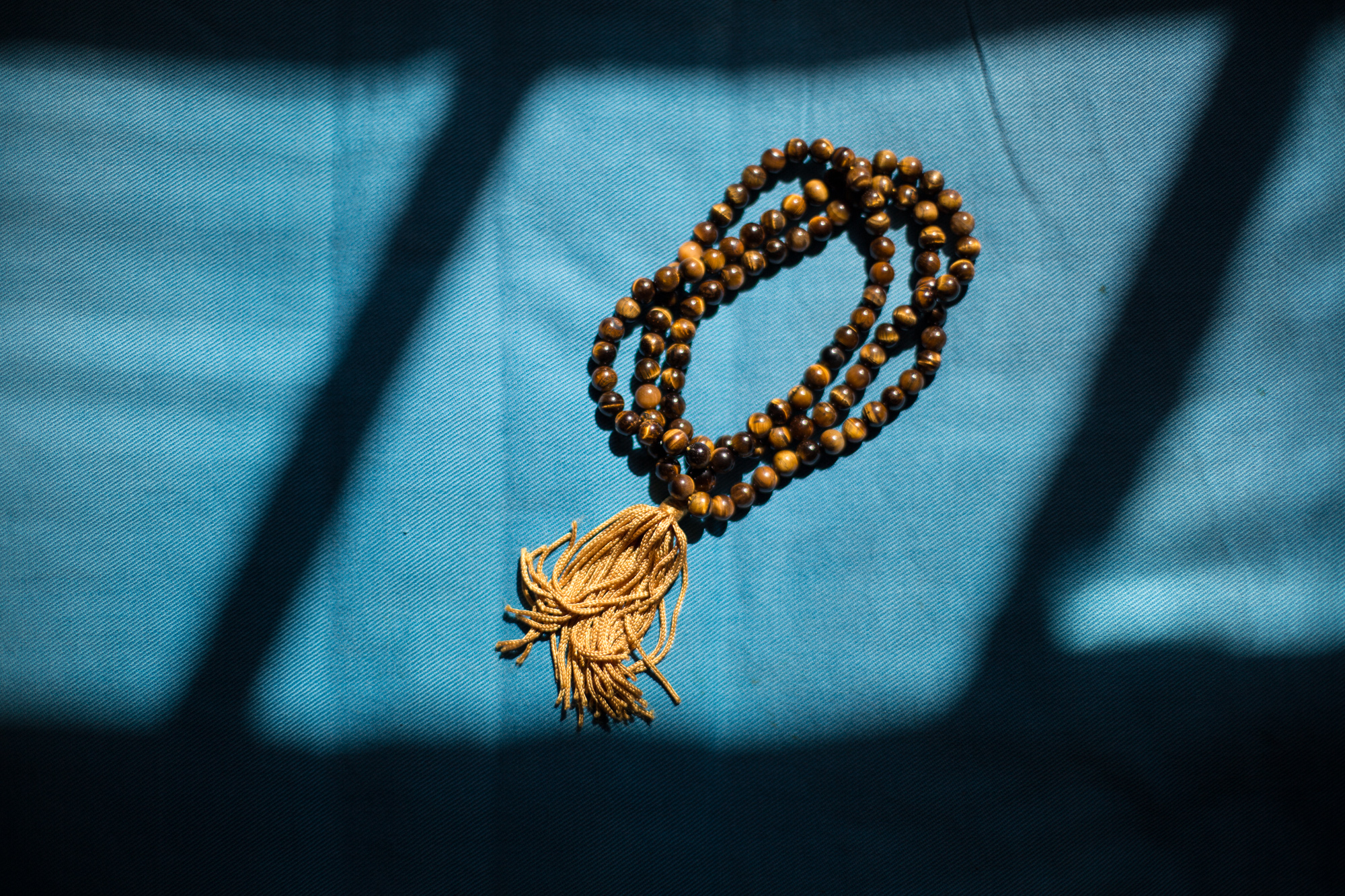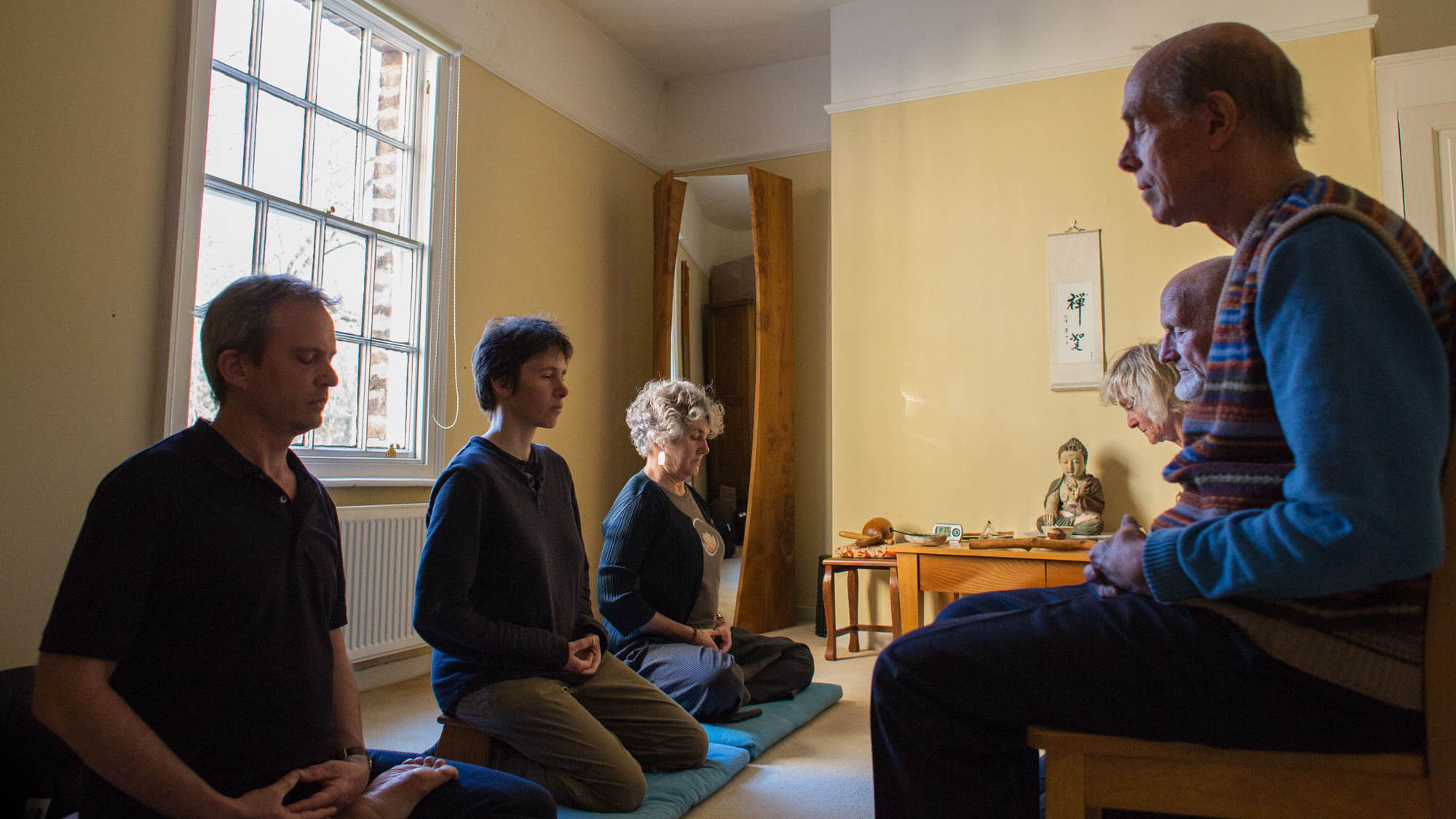KWAN SEUM BOSAL – Global Kwanseumbosal Kido for Peace
/KWAN SEUM BOSAL
Kwan Seum Bosal, known as Avalokitesvara in Sanskrit, is the Korean name for the bodhisattva of compassion. Kwan Seum literally means "perceive world sound," which is also translated as "one who hears the cries of suffering of the world”. Bosal is the Korean translation of bodhisattva. The bodhisattva of compassion hears the cries of the whole world and responds with compassionate action.
Global Kwanseumbosal Kido for Peace
Dear Global Sangha,
We will be having a three hour Kwanseum Bosal Kido for the Ukrainian people and for all of humanity on Sunday, March 6th, 2022.
Let’s visualize our moktaks as being the impact that ends all wars, and our voices as being the Big Love that can be received by all beings. We must try. We just do it 100%.
Yours in the dharma,
Bobby
March 6, 2022
8 AM EST / 2PM CET / 3PM EET / 10PM KST
Click here to see this in your time zone
Join Kido: Zoom link
Meeting ID: 884 1103 0213
Passcode: 934993
Imbalance is our world’s sickness: how can we cure it? Balance means understanding the truth. If you have no wisdom, you cannot become balanced. It is very important for everyone to find their human nature. That is why we sit Zen, to find our true human nature. So we are in a very important position, sitting in meditation. We must find our human nature, then together help each other become world peace. As human beings, we are all equal. We all have the same love mind. We must find the primary cause of this world’s sickness, and remove it.
- Zen Master Seung Sahn
Keeping Quiet - by Pablo Neruda
Now we will count to twelve
and we will all keep still.
For once on the face of the earth,
let’s not speak in any language;
let’s stop for a second,
and not move our arms so much.
It would be an exotic moment
without rush, without engines;
we would all be together
in a sudden strangeness.
Fishermen in the cold sea
would not harm whales
and the man gathering salt
would not look at his hurt hands.
Those who prepare green wars,
wars with gas, wars with fire,
victories with no survivors,
would put on clean clothes
and walk about with their brothers
in the shade, doing nothing.
What I want should not be confused
with total inactivity.
Life is what it is about…
If we were not so single-minded
about keeping our lives moving,
and for once could do nothing,
perhaps a huge silence
might interrupt this sadness
of never understanding ourselves
and of threatening ourselves with
death.
Perhaps the earth can teach us
as when everything seems dead in winter
and later proves to be alive.
Now I’ll count up to twelve
and you keep quiet and I will go.
Extravagaria : A Bilingual Edition
by Pablo Neruda (Author), Alastair Reid (Translator)
Noonday Press; Bilingual edition (January 2001)
ISBN: 0374512388
page 26

